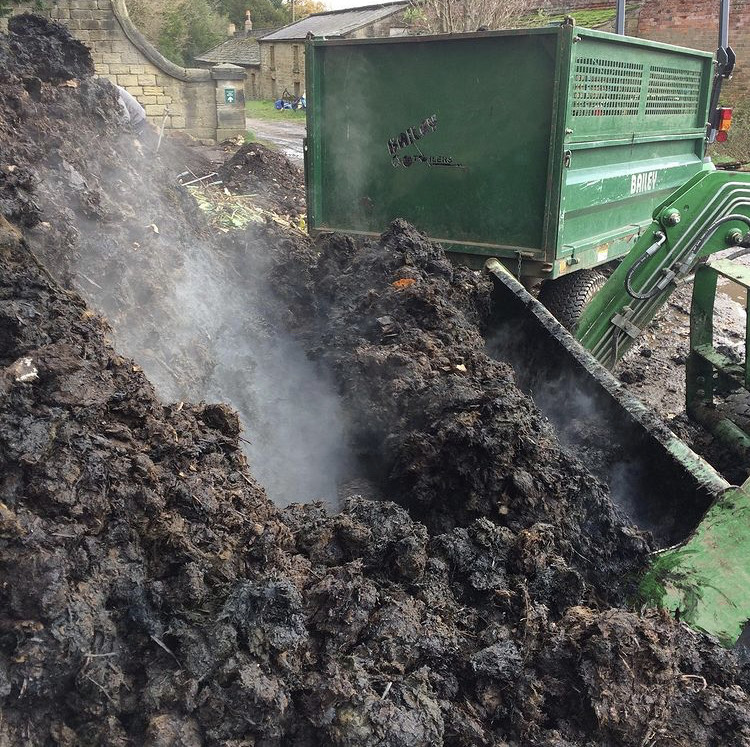Harewood’s Head Gardener Trevor Nicholson takes us through new processes and methods being implemented across the Gardens, as Harewood looks to the future and more sustainable ways of caring for its Gardens and Grounds.
As autumn gives way to winter, the Grounds and Gardens teams have been very busy, ably assisted by our loyal and enthusiastic band of volunteers. For the grounds team this means the removal of a huge quantity of fallen leaves from Harewood’s verdant lawns. The collected leaf litter is a valuable source of leaf mould for the gardens.
Having made the decision a few months earlier to change the way we grow our vegetables in the Walled Garden to something approaching the ‘no-dig’ system, every leaf – in fact, every scrap of green garden waste – has become significantly more precious to us as a renewable source of organic matter to be re-purposed as a growing medium.
Although we’ve been making compost for many years, the real difference is in the way we now apply it – and why. Call it what you will: ‘no dig’, ‘no till’, ‘reduced tillage’ etc, there are numerous labels; but they all mean pretty much the same thing: put away the spade and stop turning over and chopping up the garden soil year after year!
Regularly digging over and breaking up the soil impacts on the soil ecosystem by disturbing complex ‘food webs’ – interrelations between a multitude of soil organisms and mycorrhizal fungi, which live symbiotically with plants. Leaving the soil undisturbed and placing organic matter onto the surface not only prevents stored carbon from the soil being released into the atmosphere through digging, it also provides optimum conditions to enable the community of soil organisms to flourish.
The beneficial effect of these soil organisms includes increasing the fertility of the soil and improving its structure. One of the most important environmental benefits of adopting this method of surface ‘mulching’ is the retention of soil moisture, which not only saves water, but also reduces soil erosion and helps prevent the silting up of rivers and drainage systems.
Another added benefit to the gardener of applying organic matter to the soil as a surface ‘mulch’ is the control of weeds. This method need not be confined to the vegetable garden. We are experimenting in some areas of the Himalayan Garden with the use of waste cardboard re-purposed as a biodegradable ground cover, which is being placed between plants and topped off with sieved leaf mould.
The composting of our green garden waste and the recycling of biodegradable materials really underpins much of what we are doing in the gardens – now and in the future – as we set our focus on working in ever more sustainable ways and having environmentally considered methods at the forefront of our thinking.

